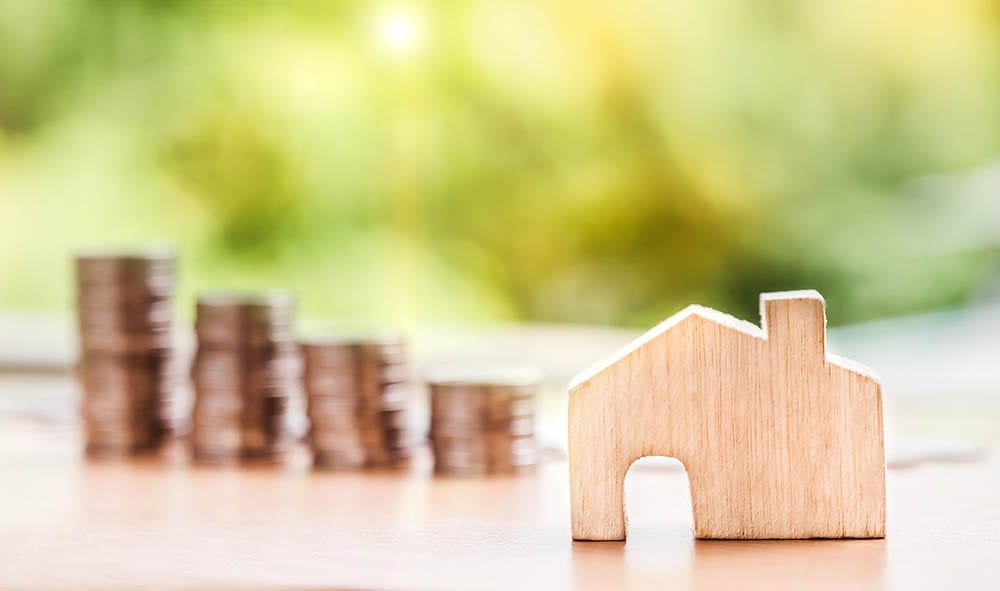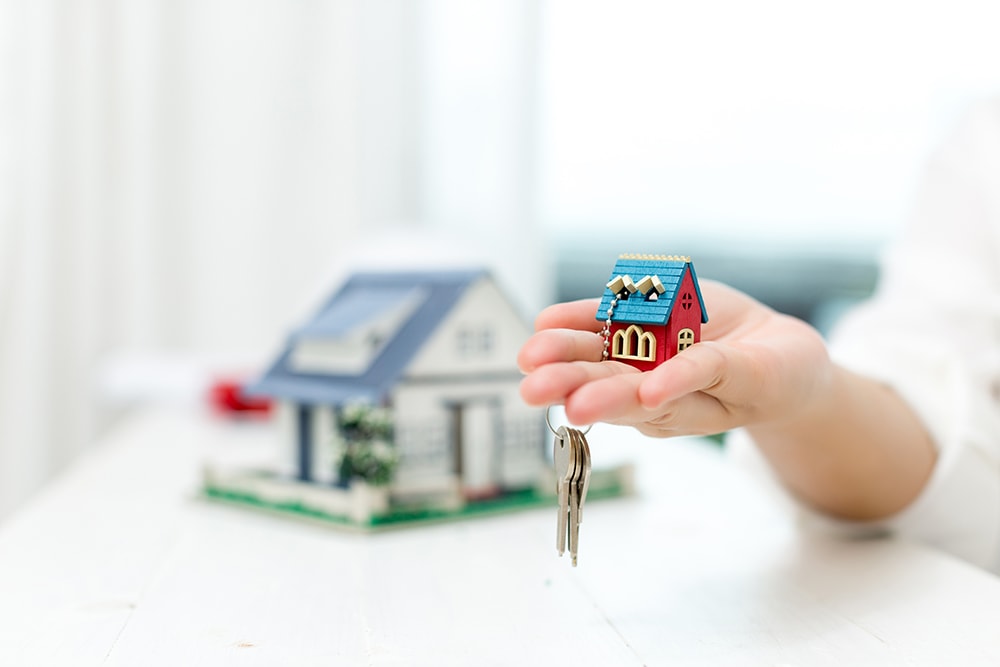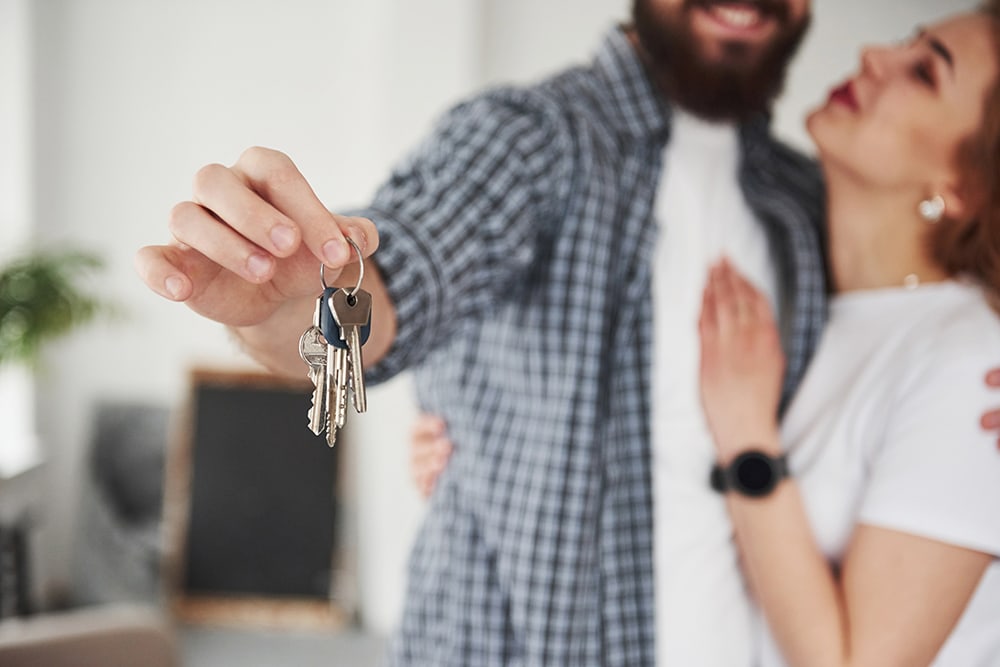How Many Homeowners Have Paid Off Their Mortgage? (2025 Update)
-

- Last updated:

Most homes in the US have mortgages that the owners have to pay back on the agreed duration. While millions of homeowners found it hard to keep up with payments when the pandemic hit, there’s a percentage that managed to pay off their homes.
In the US, 38% of homes are free of mortgages—giving their owners peace of mind during these trying financial times. Despite the pandemic unsettling many families, this small percentage had either paid off their homes before the pandemic or managed to finish the process regardless.
Learning more about those whose homes are paid off and how they did it is likely to be both motivating and helpful. In addition, you can know more about mortgages, how many people have them, and if it’s prudent to pay your home off early.
How Did Homeowners Manage to Pay Off Their Homes During the Pandemic?
Millions of households have been struggling to earn a living since 2020, when the pandemic first hit. Some industries had to shut down, as many places went into lockdown to avert the spread of COVID-19. Still, a percentage of Americans managed to keep up with their payments and are now mortgage-free.
How did they do it? There were a few ways that these homeowners succeeded.
Short-term Refinancing
Many homeowners go for long-term home mortgages that can last up to 30 years. However, this isn’t the only option for purchasing a house in the US. Some homeowners opted for short-term refinancing that saw them pay more each month, but for a shorter duration.
As their sources of income were likely not cut off by the pandemic, they were able to keep up with the high payments. This may explain why these percentages of people are now mortgage-free. Plus, not having to pay back as much with short-term loans, generally mean lower interest rates.

Mortgage Forbearance
In March 2020, the government introduced mortgage forbearance under the CARES Act. This Act helped homeowners get into an agreement with their lenders about paying back the amount they owe.
Basically, mortgage forbearance gives the homeowner time to financially get back on their feet. Lenders pause monthly payments for a set duration, then resume once the time elapses. There’s a chance for an extension, but this usually depends on the lender.
This payment pause indeed helped many families work out their financial situations without worrying about foreclosures. But they still had to pay back the total amount, including any payments they missed before the forbearance.
Paying Extra
As of January 2014, there are no penalties charged when a homeowner wants to pay extra each month. As the pandemic hit, many homeowners desired to be debt-free. This meant paying off what they owed, like credit cards and mortgages.
Many sought ways to get extra income and make larger payments to banks each month. Others got into agreements with lenders to accept lump-sum payments to reduce their balances, enabling them to clear what they owed.

How Much Does the Average Person Owe in Their Mortgage?
Approximately 63% of American households carry a mortgage, which varies depending on their home type. The average American owed $215,655 as of 2020, which increased from $213,599 in 2019.
However, this is simply an average, as Americans do owe varying amounts. Many people see mortgages as the best way to own a home, which has been the American dream since the 1960s. It’s easier to use, since many people can’t afford to cover the whole cost of purchasing a home at a go.
But to get a mortgage, a potential homeowner has to meet the requirements set by the lending company. These requirements help the lender assess potential homeowners’ financial capability to repay the loan on the agreed period.
Among the most popular mortgages is the 30-year plan, which has lower monthly payments. But, this also incurs a high-interest rate. There’s also an option of a 20-year plan or a 10-year plan. You pay a higher amount each month, but the interest rate on the loan is lower. While paying off the mortgage, you and your family can live in the house.
At What Age Should You Have Paid Your Home Off?
When so many people are in debt, including mortgage debt, it’s crucial to find ways to be debt-free. Many people still have to go to work every day because they owe too much to their houses and risk foreclosure if they default.
If possible, as a homeowner, it’s best to pay off your home at the age of 45. This gives you the freedom to pursue other interests, work less, or completely retire early if you wish to do so. For instance, when you want to be debt-free and own a home, you can choose a short-term mortgage plan with high monthly payments and low interest.
In addition, some homeowners talk to their lenders about making bulk payments. They no longer incur penalties for early payments. Since times are uncertain, some lenders even encourage these types of agreements, which can follow mortgage forbearance.

What Percentage of Homeowners Owe More Than Their House Worth?
Have you ever heard of negative equity? Well, this is when a homeowner owes the bank more than their house is worth. Basically, you have to pay the lender a higher amount than the house’s value you currently have a mortgage for.
In the US, about 23% of Americas owe a higher mortgage than the value of their home. It means these homeowners are underwater, which greatly impacts the household financially. Having negative equity can be quite detrimental to your well-being.
You may never be able to do the following under such circumstances:
Relocate
As a homeowner, relocating is out of the question while underwater. First, you have to find a way to get back to positive equity before selling the house. Before purchasing the house, a prudent buyer will do their homework and discover the negative equity. That is how you end up without a sale and trapped in a house that’s now a serious expense.
Accumulate Wealth
Having negative equity makes it hard for a household to have any money, let alone get rich. All the extra income the homeowners earn goes into trying to salvage the situation. Even after paying back the loan, the house is still worth less than the mortgage, meaning it is still not a worthy investment.
Have Financial Freedom
Owing more than the house is worth means paying more to the bank each month. The monthly payment can eat into what you earn with a fixed income. This leaves you with quite a little money to handle your other needs, let alone have wants and luxuries.
It’s prudent to always be on your toes regarding the money you owe. Ensure you learn if you have negative equity or not by talking with your lender when you suspect something is off with your mortgage.
Get to know the amount you owe for the mortgage and try and get a valuation done on the property. This will give you the current price of the house based on the market. Once you have the valuation and the amount you owe, you can assess if you have negative equity or not.

Why Shouldn’t I Pay Off My Mortgage Early?
During challenging times, it’s crucial to be debt-free. This is why many homeowners are working on paying off their mortgages with any extra income they get. While this is a good thing to do, it might not be the solution to your finances.
Most people tend to dip into their emergency funds or don’t have an emergency fund at all. Their primary focus is to pay back what they owe for the house. But the extra cash you get is best added to an emergency fund that protects you in the future.
Unless you have the funds to pay off early comfortably, it is best to take it slow so that you do not strain financially or neglect other financial obligations, such as your kids’ school fees.
Can I Sell Off My House Before Paying Back My Mortgage?
Some homeowners may want to sell off their homes while they still owe the bank a certain amount. Since most mortgages have a 10 to 30 year repayment period, it’s possible to sell it to a new owner. Many do so since they owe the bank less than the house’s value.
However, ensure you understand the terms of such sales. Most lenders will charge you a prepayment penalty when you choose to sell a house before completing the payments. Speak with your lender about the prepayment fee, which can be between 2–5% of the owed amount.
Summing Up
Roughly 38% of homes in the US are completely paid off. Many homeowners managed to keep up with payments or use forbearance to achieve this. Others opted to speak with lenders to renegotiate the terms of their mortgages, which meant paying higher amounts monthly for a shorter period.
About 63% of American households carry a mortgage. Many hope to pay off what they owe early, giving them much more freedom financially and in life. However, a certain percentage owes more than the value of their home and find themselves with negative equity.
Overall, homeownership is a long-term investment that you have to work out by considering your financial capabilities through the period you intend to pay off. Always be ready to work it out with a lender or financial institution, and ensure you pay off as agreed to avoid foreclosing.
See also:
- How Do Second Mortgages Work? The Interesting Answer!
- How Does a Cosigner Work on a Mortgage? Everything You Need to Know!
Featured Image Credit: xb100, Freepik
Contents

